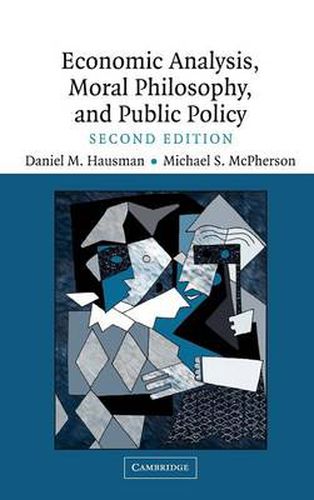Readings Newsletter
Become a Readings Member to make your shopping experience even easier.
Sign in or sign up for free!
You’re not far away from qualifying for FREE standard shipping within Australia
You’ve qualified for FREE standard shipping within Australia
The cart is loading…






This 2006 book shows through accessible argument and numerous examples how understanding moral philosophy can improve economic analysis, how moral philosophy can benefit from economists’ analytical tools, and how economic analysis and moral philosophy together can inform public policy. Part I explores rationality and its connections to morality. It argues that in defending their model of rationality, mainstream economists implicitly espouse contestable moral principles. Part II concerns welfare, utilitarianism and standard welfare economics, while Part III considers important moral notions that are left out of standard welfare economics, such as freedom, rights, equality, and justice. Part III also emphasizes the variety of moral considerations that are relevant to evaluating policies. Part IV then introduces technical work in social choice theory and game theory that is guided by ethical concepts and relevant to moral theorizing. Chapters include recommended readings and the book includes a glossary of relevant terms.
$9.00 standard shipping within Australia
FREE standard shipping within Australia for orders over $100.00
Express & International shipping calculated at checkout
This 2006 book shows through accessible argument and numerous examples how understanding moral philosophy can improve economic analysis, how moral philosophy can benefit from economists’ analytical tools, and how economic analysis and moral philosophy together can inform public policy. Part I explores rationality and its connections to morality. It argues that in defending their model of rationality, mainstream economists implicitly espouse contestable moral principles. Part II concerns welfare, utilitarianism and standard welfare economics, while Part III considers important moral notions that are left out of standard welfare economics, such as freedom, rights, equality, and justice. Part III also emphasizes the variety of moral considerations that are relevant to evaluating policies. Part IV then introduces technical work in social choice theory and game theory that is guided by ethical concepts and relevant to moral theorizing. Chapters include recommended readings and the book includes a glossary of relevant terms.